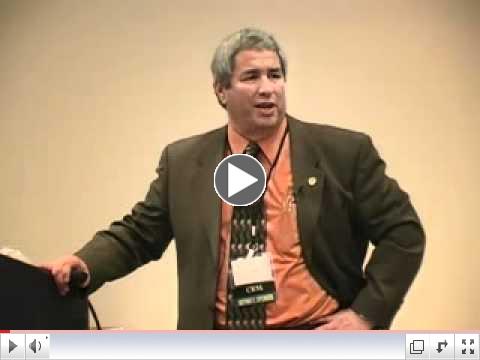|
Monthly Video
 | |
Emergency Preparation
|
This video was prepared by a friend's robotics team, a group of young ladies and gentlemen aged 9-10. For the past few wakes they've studying preparedness and keep up with this idea for getting to word out to the public. If grade school children can produce a video on preparedness this easily, what's holding you back?
|
Blog Highlights
The following are excerpts from my blog
Canton on Emergency Management. Please visit my blog to see the rest of my articles.
|
 | | My Website |
Follow Me
 | |
Newsletter Archive
|
|
|

Welcome to the November issue of Emergency Management Solutions.
This is, of course, the season where we reflect on all the things for which we are thankful. One of the things I'm most grateful for is the many colleagues like you who have been kind enough to read these newsletters and to share your thoughts and expertise with me. Without the reader, the writer is nothing. Thank you!
November is also the anniversary of one of the most intriguing historical disasters, the Lisbon earthquake in 1755. In many ways, it is the first modern disaster, with concepts such as incident command and mitigation being used and used effectively. I hope that my brief article will encourage you to learn more about this fascinating disaster.
Happy Thanksgiving!
Regards,
|
|
_________________________________________________
Featured Article
The 1755 Lisbon Earthquake
A case study
| |
At 9:30 on the morning of November 1, 1755, the city of Lisbon, Portugal, was struck by one of the deadliest earthquakes in history. Estimated at 8.6 Richter, the temblor was so great that the seiche effects (the standing wave in an enclosed or partially enclosed body of water) were observed as far away as Finland. About 20 minutes after the temblor, the first of three 15-40 foot tsunamis struck the waterfront area along the Tagus River.
Fires broke out almost immediately, the result of the use of candles and wood burning stoves. There is also evidence that some of the fires may have been set by convicts who had escaped the damaged prison to cover looting. The fire burned for almost six days, gutting the center of the city.
| |
CLICK HERE TO READ THE REST OF THIS ARTICLE
_______________________________
If you are having trouble viewing my featured article, try clicking on the link at the top of the page. You can always find my articles in the white paper section of my blog site, Canton on Emergency Management.
|
Professional Development
As should be obvious from my Speaker's Corner section, I do a fair bit of public speaking. It might surprise you to know that I didn't enjoy my public speaking class in high school and was flop in the debating team. Like anyone new to speaking in public, I was terrified to get up in front of the class or any other group for that matter. However, I started training others in the Boy Scouts and later in college ROTC and began to really enjoy it. The thing was, I didn't think of it as public speaking - I was just passing on information to my peers. That made big difference in my mindset. The ability to speak persuasively is, in my opinion, one of the three key skills an emergency manager must have, the others being the ability to write effectively and the ability to facilitate a meeting. Like any other skill, it can be learned through a combination of experience and study. You just need to move outside your comfort zone a bit and change your perspective. |
|
|
November means the start of the holidays and for many of us our stress levels start to peak. We try to juggle the demands of our jobs with the commitments to our families.
The winter brings with it a number of potential risks that must be addressed, ranging from severe weather to major parties, from heavily burdened transportation systems to flooding. Contrasting with these increased risks are the demands of holiday partying, decorating and gift buying. It's enough to drive anyone crazy.
All the more reason to do what we do best: plan. Plan for the unexpected and consider the demands on you and those who work with you. Families are important and you can make trade-offs and adjustments. It just takes a little foresight and remembering what's really important in life.
|
|
From the Bookshelf

The Leadership Challenge: How to Make Extraordinary Things Happen in Organizations
by James M. Kouzes & Barry Posner
For over thirty years, researchers Kouzes and Posner have been studying what makes a successful leader. The results have been surprisingly similar across time, age, gender, and nationalities: there are core behaviors that are common to all successful leaders and that the frequency of these behaviors correlate with the leader's success. And unlike leadership traits, behaviors can be changed. From this finding, Kouzes and Posner have evolved the Five Practices of Exemplary Leadership that can be used as a model for improvement.
The book isn't the most exciting read but the research is solid and the concepts simple and easy to grasp. The authors make use of numerous examples to highlight their theories that help keep things interesting. Definitely worth checking out.
|
|
Looking for a Speaker?
Need a speaker for your next conference? I offer keynotes, seminars and workshops. You can find more details on my website or on my SpeakerMatch page.
 | | Lucien Canton Seminar Excerpts |
|
|
Speaking Engagements
Now taking bookings for 2014!
|
|
|
|
|